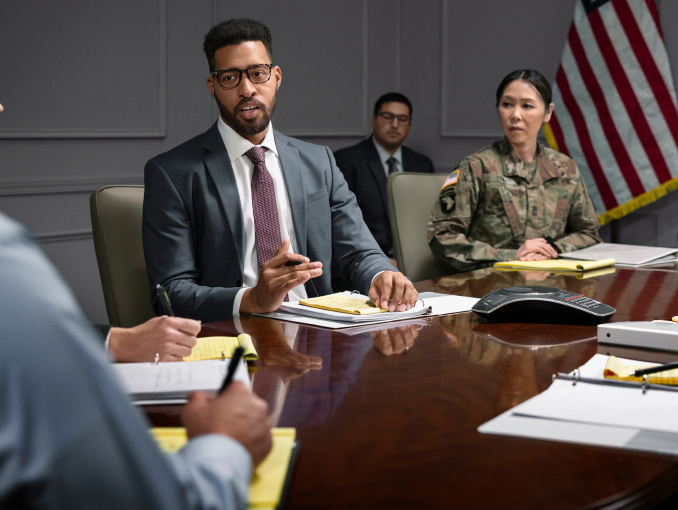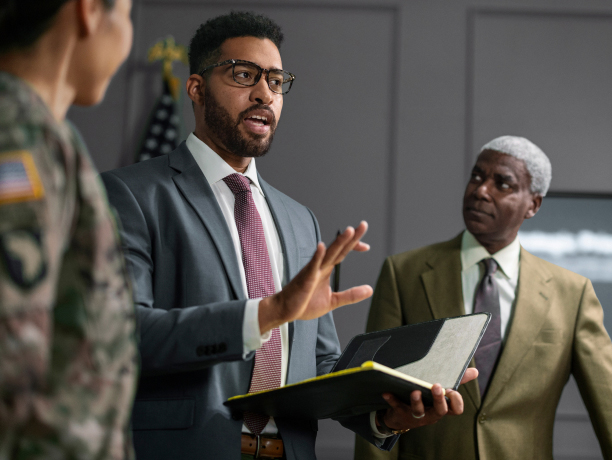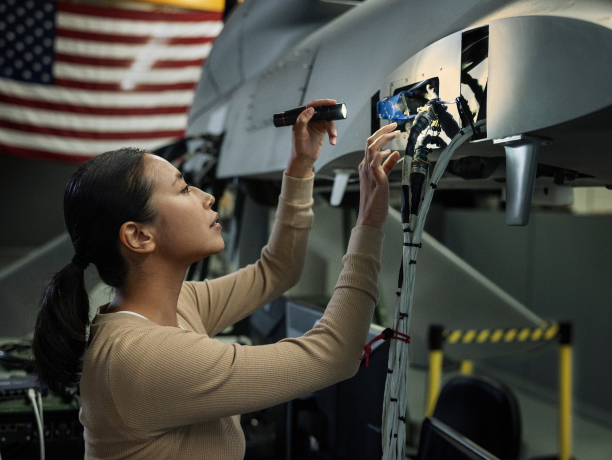Health care options
The Federal Employees Health Benefits (FEHB) includes top tier insurance options and more than 125 health plans with competitive rates to support you and your family.
Army Civilians are employees who work on programs that have the scale and impact you won’t find anywhere else. So, whether you are just starting out or you are established in your career, you can bring your strengths, abilities, and experience to the Army Civilian workforce.
The Federal Employees Health Benefits (FEHB) includes top tier insurance options and more than 125 health plans with competitive rates to support you and your family.
The Federal Dental and Vision Insurance Program (FEDVIP) offers additional coverage to support your dental and vision health.
You are automatically covered under the Federal Employees’ Group Life Insurance (FEGLI) with the opportunity to enroll in additional, optional coverage.
As a federal employee, you’ll receive a pension—a type of salary each year after you retire—after working the required number of years. You’ll also have access to the Thrift Savings Plan, similar to a 401(K), with employer matching. You can choose to automatically contribute a percentage of your salary from each paycheck to invest in your future.
See what’s next for your career with exciting job opportunities across hundreds of career paths available to Army Civilians.

Use your specialty in STEM to work on local or national projects that affect entire cities and regions. Jobs may include:

Implement highly sensitive cyber security protocols and provide a variety of IT services and support. Jobs may include:

Implement cutting-edge technology to assist with data gathering and security measures for extensive security and intelligence operations. Jobs may include:

Use your knowledge and expertise to instruct, inform, and advise on a specific subject or field. Jobs may include:

Use your expertise in contracting, finance,
logistics, or administration to help the
Department of the Army run efficiently and
effectively. Jobs may include:
In addition to meeting the requirements specific to your career, every Army Civilian candidate must meet three basic requirements to be considered.
Be a U.S. Citizen or Green Card holder
Be at least 18 years old
Have a high school diploma or GED
Army fellowship and internship programs are designed to attract top civilian talent and students. Each provides unique and invaluable work experience and skill development. See all the opportunities that are currently available. Fellowships are listed first, followed by internships (listed as “student trainee”).
This program offers a two-year fellowship that combines real-world work assignments with formal training and self-development opportunities to help you progress from entry-level positions to more advanced positions within the workforce. If you successfully complete the program, you’ll be placed in a permanent full-time position.
Internships are for current students at the undergraduate or graduate level to work part time within a specific command. You’ll need to meet certain academic requirements each semester to be eligible for the program. Permanent placement is not available after completing an internship.

The experiences you will have as an Army Civilian, the lessons you’ll learn, the people you’ll work with, and the results that you’ll see are life changing… It’s not a career I ever expected.– Kyle R.

If you’re somebody who strives for professionalism—to grow as an individual—there is no better job.– Wyatt C.

There’s always a new challenge out there waiting for someone to come up with the next big idea. There’s something for everybody.– Kara M.

The organizational culture and support environment is excellent. There’s a sense of meaning here.– Ryan H.

You’ll make a difference by doing your best every day. Being an Army Civilian, I am home and I am where I belong.– Theresa W.
In general, no. Unless you accept a hiring incentive, you will work under the same conditions as other federal government employees or any private sector employees.
No, Army Civilians are not required to pass the Army Combat Fitness Test (ACFT) in order to work. Instead, some positions may require a pre-employment medical examination.
As an Army Civilian, you’ll have access to training opportunities to advance your skills and gain certifications throughout your career. You won’t need to go through Basic Training.
You can search and apply for open Army Civilian positions.